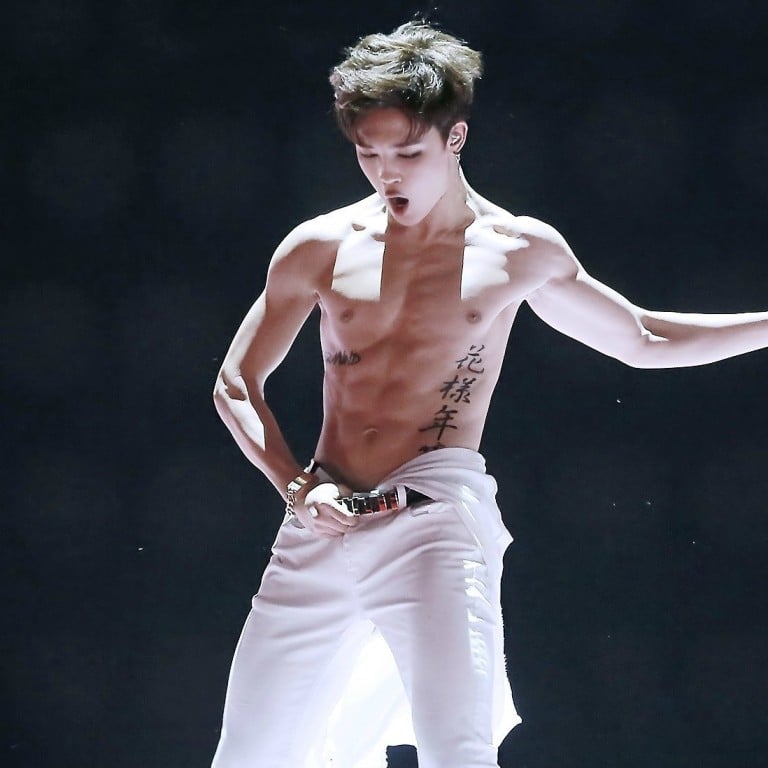Why do patriotic Korean stars like BTS member Jimin risk their popularity on social media?

BTS’ Jimin, Sunny from Girls’ Generation and actress Sulli feel the ire of Japanese fans, while Song Hye-kyo somehow avoids the blame game
Some South Korean pop and drama stars don’t seem to mind, so it is not surprising that their views on historical issues have stirred anger among Japanese fans and driven anti-Korean sentiment
Jimin, from K-pop group BTS, provoked a storm in November 2018 when he wore a T-shirt showing the atomic bomb in Hiroshima which called for an end to the second world war in 1945. The shirt contained the words ‘patriotism’, ‘our history’, ‘liberation’ and ‘Korea’, and a picture of South Korea’s national flag.
It was seen by some in Japan as celebrating the bomb which led to the independence of the Korean peninsula from Japanese colonial rule. Japan and Korea’s shared wartime history remains a sensitive topic for both countries
Pictures of his T-shirt spread like wildfire online, prompting a temporary boycott from Japanese fans and the Japanese entertainment industry.
Japan’s Asahi TV cancelled BTS’ scheduled performance on the pop music show Music Station. Plus an advertising contract for a concert by V, who is in BTS, was abruptly cancelled.
This prompted an outpouring of support from Chinese fans who took out an advertisement on a rooftop screen opposite the Japanese embassy in Seoul proclaiming, “No matter what happened, our love for Taehyung (V’s real name) has never stopped”.
Each year on March 1 (March First Day commemorating a series of demonstrations calling for independence that began on this day in 1919) and August 15 (National Liberation Day, which ended 35 years of Japanese colonial rule), some Korean celebrities express their patriotism on social media networks. This often leads to criticism from Japanese fans.
On March 1, 2015, Sunny of Girls’ Generation (SNSD) posted a picture of Korea’s national flag with a quote on her Instagram account: “There’s no future for the people who have forgotten their history”, words South Korean people often cite.